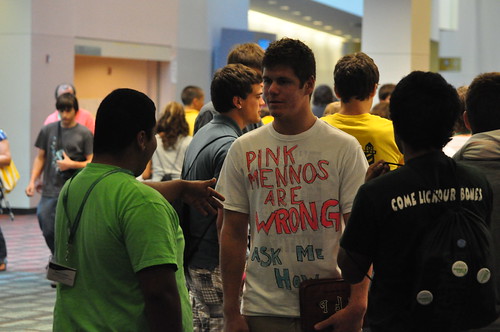Voices for LGBTQ inclusion from Pink Mennos
Cross-posted from As of Yet Untitled
The Mennonite Church USA executive board meetings in Harrisonburg wrapped up yesterday. It’s been an intense two weeks. On Feb. 4, the Mennonite Church USA (MC USA) website posted Ervin Stutzman’s response to the “Rule of Love” letter from 150 pastors calling for MC USA “make space for congregations and pastors who welcome and bless lesbian, gay, bisexual and transgender (LGBT) Jesus-followers.”
As one of those responsible for managing Pink Menno’s social media presence, I’ve watched over the last few days as the community has responded to Stutzman in anticipation of the MC USA Executive Board meetings next week. This post curates different voices and perspectives from those who participate in the Pink Menno community. This is not an official Pink Menno statement.
As the MC USA Executive Board met, I hope they considered these voices.
Shift in tone and wording
A number of people appreciated the shift in tone they saw in Stutzman’s letter. The most obvious was his use of the term “people on the LGBTQ spectrum” rather than “gays” or “same sex attraction.” His use of this term acknowledges the existence of transgendered people (the T in LGBTQ). “He is naming that there is a problem with how we relate,” says Cynthia Lapp. “He is naming the pain. Small steps and yet coming from Ervin it is an important shift.”

